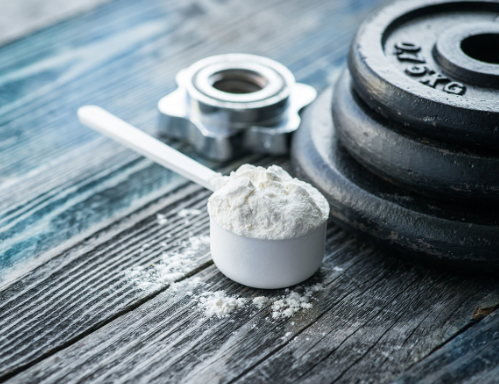Because of its ability to improve muscle mass, strength, and performance, athletes and fitness enthusiasts have come to love creatine, a naturally occurring substance found in the body. Although a number of studies have demonstrated the benefits of creatine supplementation, possible negative effects have also raised concerns.
What Does Creatine Mean?
A nitrogenous organic acid, creatine, is essential for muscle cells to produce energy. It is produced in the pancreas, liver, and kidneys and can also be found in fish and meat. Supplementing with creatine can raise the body’s levels of the amino acid, which may lead to improved muscle performance during high-intensity activities.

Advantages of Creatine
The following are just a few of the studies that have shown the advantages of taking creatine supplements:
Strength and muscle mass gains:
Lean muscle mass and general strength can both be enhanced by creatine.
Enhanced sports performance:
Short-duration energy-demanding exercises like running, weightlifting, and leaping can all be made more efficient with the help of creatine.
Enhanced brain function:
Research has indicated that creatine may enhance cognitive performance, especially in those with neurological conditions.

Possible Adverse Reactions to Creatine
When used in accordance with approved dosages, creatine is usually regarded as safe; however, certain people may have adverse consequences. Typical adverse effects consist of:
Digestive problems:
When using creatine, some people may get bloating, diarrhea, or stomach cramps.
Gaining weight:
Although creatine can lead to weight gain, this is usually the result of increased muscle mass rather than fat gain.
Kidney issues:
Although there have been worries that creatine may harm kidneys, these worries have not been supported by carefully planned research.
Safety Points to Remember
It is important to remember that most healthy people can safely take approved dosages of creatine. However, before taking creatine supplements, anyone with specific medical issues, such as liver or renal illness, should speak with a healthcare provider. Furthermore, women who are nursing or pregnant should not take creatine supplements.
In summary
Popular supplements like creatine have been shown to improve muscle mass, strength, and athletic performance. Although adverse effects are possible, they are usually minor and infrequent. It is crucial to speak with a healthcare provider if you are thinking about taking creatine to find out if it is good for you and to ensure you are taking it at a safe dosage.
Our Personal Creatine Supplement Recommendations:
Affordable Option: https://amzn.to/4e6vAGm



